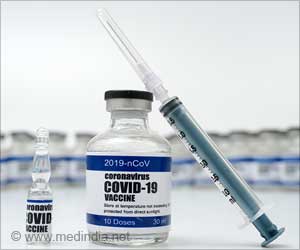The S1 spike protein of the COVID-19 virus causes cognitive effects, such as brain fog, and fatigue in infected patients by crossing the blood-brain barrier.

‘COVID-19 causes cognitive effects, such as brain fog, and fatigue in infected patients. The S1 spike protein of the SARS-CoV-2 virus crosses the blood-brain barrier to enter the brain and releases cytokines and inflammatory products for manifesting the neurological symptoms.
’





COVID-19 Manifestations in Brain : Scientifically, the COVID-19 causes intense inflammation leading to cytokine storm. In other words, the immune system, upon the invasion of the virus and its proteins, overreacts in its attempt to kill the invading virus. The infected person is left with brain fog, fatigue, and other cognitive issues. Similar reaction was seen with HIV.
The S1 protein in SARS-CoV2 and the gp 120 protein in HIV-1 function similarly. They are glycoproteins - proteins that contain attached sugar residues, hallmarks of proteins that bind to other receptors. Both these proteins function as the arms and hand for their viruses by grabbing onto other receptors. Both cross the blood-brain barrier and S1, like gp120, is likely toxic to brain tissues.
"We know that when you have the COVID infection you have trouble breathing and that's because there's an infection in your lung, but an additional explanation is that the virus enters the respiratory centers of the brain and causes problems there as well," says Banks, a professor of medicine at the University of Washington School of Medicine and a Puget Sound Veterans Affairs Healthcare System physician and researcher.
The experiment also proved that S1 was transported faster in the olfactory bulb and kidney of males than females which answers the increased susceptibility of men to more severe COVID-19 outcomes.
Advertisement
Source-Medindia















